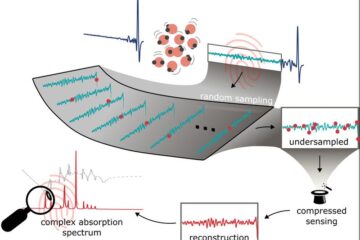Swimming pool chlorine risk to pregnant women

Research by Dr Mark Nieuwenhuijsen published in the journal Occupational and Environmental Medicine today (4 April) highlights an area of potential risk to pregnant women through exposure to the by-products of chlorination in swimming pools.
The following statement clarifies the potential risk:
Dr Nieuwenhuijsen, from the Department of Environmental Science and Technology at Imperial College, London says:
“There is no empirical evidence that chlorination by-products in swimming pools have a detrimental effect on the health of swimming pool users. Based on the available evidence, there is minimal, if any, risk for pregnant women and the benefits largely outweigh the risks. Swimming is beneficial to pregnant women but it is also essential to disinfect water to get rid of dangerous pathogens.
“In other countries some studies have associated these by-products with spontaneous abortion, stillbirth and birth defects, but if you take all the studies together the results are inconsistent and inconclusive. These studies were not of swimming pool users but of the health effects of chlorination by-products generally.”
When chlorine is added to water it reacts with organic matter such as skin cells and body care products to form “disinfectant by-products” or DBPs. The most common type of DBPs, trihalomethanes, was measured in the study using 44 samples collected from 8 swimming pools in London.
Dr Nieuwenhuijsen recommends:
- Pregnant women should keep swimming and enjoy it but shower properly before going into the pool.
- Swimming pool management should continue to operate in accordance with the guidelines issued by the Institute of Sport and Recreation Management and the Pool Water Treatment Advisory Group and monitor free chlorine and chloramines levels and keep them as low as reasonably practicable without compromising microbial disinfections.
- Areas of further research should investigate what other by-products are formed, what the levels are, how and at what rate they are taking up into the body and if they are linked to birth outcomes in the UK.
Media Contact
All latest news from the category: Health and Medicine
This subject area encompasses research and studies in the field of human medicine.
Among the wide-ranging list of topics covered here are anesthesiology, anatomy, surgery, human genetics, hygiene and environmental medicine, internal medicine, neurology, pharmacology, physiology, urology and dental medicine.
Newest articles

How evolution has optimised the magnetic sensor in birds
The magnetic sense of migratory birds is probably based on the protein cryptochrome 4, and a genetic study has now provided further support for this theory. A team of researchers…

Molecular Fingerprint Beyond the Nyquist Frequency
Ultrafast laser spectroscopy allows the ascertainment of dynamics over extremely short time scales, making it a very useful tool in many scientific and industrial applications. A major disadvantage is the…

High-energy-density aqueous battery based on halogen multi-electron transfer
Traditional non-aqueous lithium-ion batteries have a high energy density, but their safety is compromised due to the flammable organic electrolytes they utilize. Aqueous batteries use water as the solvent for…





















